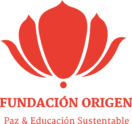



Highlighted Projects
Every day, we aim to develop our projects out of reflection; out of a real desire to live in a more equitable world that can offer opportunities to those who need them; out of a commitment to work and put forward concrete actions for personal, social and environmental transformation, relying on the potential that each participant holds.
In times like those we live in, we believe in the power of our commitment, and in hope-inspiring and regenerative action undertaken for the benefit of future generations.
For 2022-2023, the following projects are forthcoming:
Expanding school coverage in order to welcome 200 primary-school children to the
Pirque Agroecological School
At present, our students begin in the Pirque Agroecological School on year one of high-school (approximately 13 or 14 years). Often, the previous formation received by them leaves them with many deficiencies, both regarding knowledges as well as study and cohabitation habits. We believe that beginning at a younger age to be formed according to our foundation’s model will greatly and positively impact their lives and those of their families. Pirque Agroecological School is a “beacon school”, the first in Chile to be recognized as a “Transformative School” by Ashoka. We welcome thousands of visitors every year; many directors and teachers wanting to replicate our good practices in their establishments.
Energy sustainability and
water reutilization
We wish to achieve greater sustainability, both regarding solar energy to power all of the Foundation’s projects, as well as the reutilization of greywater that may be used for irrigation in times of hydrological crisis. The agroecological school need to roof its sports court: at the same time that it provides cover, the roof structure will support solar panels that will endow it with energy autonomy. Regarding drinking water, the Pirque Campus has an annual water expenditure of XX liters. A working water treatment plant would allow us to irrigate crops and meadows, saving water and setting an example for other schools in Chile.
3. Río Claro (Maule)
Agroecological Beacon
The Río Claro Campus makes part of the Los Matines de Río Claro Nature Sanctuary. Throughout its 110 hectares, we are working to regenerate agricultural soil degraded by decades of intensive grazing, and at the same time we are restoring native forests in this biodiversity hotspot, which is unique in the entire planet. Our vocation is to become an agroecological demonstrative center for the region and so to accompany small local producers in their transition toward sustainable agriculture. The sanctuary intends to be a center for education and research towards increasing awareness and taking regenerative action. We have a project to build the Samye Hermitage Center there, in alliance with Samye Institute: a place for study and compassionate practice. The union between inner work and the work that allows for sustainable conditions for the community’s wellbeing and the planet’s health
